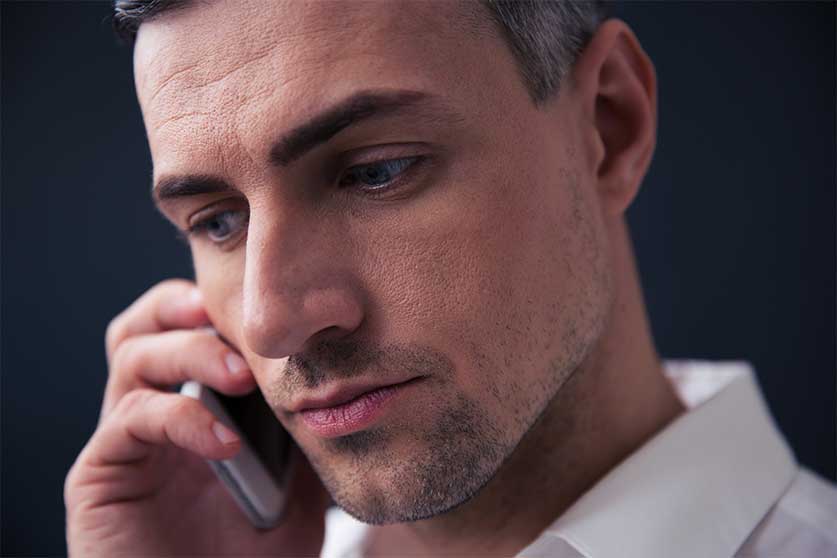How To Contact A Loved One In Inpatient Rehab
When living at an inpatient rehab center, your loved one needs your support and encouragement. That’s why most centers let you stay in touch via letters, phone calls, or in-person visits. Some also offer family therapy to help you and your loved one build a stronger relationship.

It’s important to support your family member or friend throughout the addiction recovery process. However, if your loved one lives at a treatment facility, you might not know how to keep in touch.
While each addiction treatment center has its own rules regarding outside contact, most facilities offer the following options:
Letters & Packages
Throughout your loved one’s rehab stay, you can send them letters of encouragement. These messages will serve as motivation during the early days of recovery.
You can also use the letters to keep your loved one updated on the lives of those closest to them. Such updates help provide a sense of normalcy in an otherwise unfamiliar environment.
Some treatment centers will also let you mail your loved one packages. Staff will inspect these packages to make sure they don’t contain any prohibited items. Before sending a package, ask the facility for a list of prohibited items. The list will typically include items such as:
- drugs or drug-related items, including electronic cigarettes and vaping devices
- aerosol products, such as hair spray or spray paint
- candles or incense
- weapons or sharp objects
- food and drink
Phone Calls
Most inpatient treatment programs heavily regulate the use of cell phones. For example, many programs only allow cell phone use under staff supervision. This rule helps prevent people from contacting drug dealers or other harmful individuals.
Other treatment programs ban cell phones entirely. In these programs, patients typically have access to a communal phone provided by the facility.
In either case, your loved one will only be able to make and receive phone calls at scheduled times. Contact the treatment facility to determine how to schedule a phone call.
No Calls The First Week
Also, note that most programs will not allow you to schedule a phone call during the first week of rehab. That’s because these early days tend to include intense treatment services such as medical detoxification.
During medical detox, a team of medical professionals will help your loved one manage drug withdrawal symptoms. Most people find this process physically and mentally demanding. In other words, your loved one will need to put all of their energy and focus into detox.
A phone call could serve as a distraction and make the process more difficult.
In-Person Visits
Some drug rehab centers allow in-person visits, especially if your loved one will be staying at the center for a long time. You will likely need to schedule each visit in advance. In most cases, you must stay in designated visitor areas.
Rules
Like phone calls, in-person visits are generally prohibited during medical detox. Also, as with packages, you may not bring any prohibited items. However, some centers will allow you to bring gifts. Ask the center which types of gifts are allowed.
Most centers recommend that you bring comforting items such as journals, blankets, and family photos.
Meet Treatment Team
During the visit, you might have the opportunity to meet your loved one’s treatment team. These individuals can help you better understand your loved one’s recovery journey.
Family Therapy Sessions
Many rehab programs offer family therapy.
In this type of therapy, a mental health professional will help you and your loved one resolve conflicts and build a healthy, strong relationship. The therapist can also help you explore any family issues that may have contributed to or worsened your loved one’s substance misuse.
In addition, the therapist will teach you how to best support your loved one’s long-term recovery. For example, you will learn how to avoid negative behaviors, such as shaming and enabling.
Recover From Codependency
The therapist can also help you avoid or recover from codependency.
Codependency is an unhealthy relationship dynamic in which you focus your entire life on caring for someone else, often to the point where you neglect your own needs. When left untreated, this dynamic can cause serious problems for both you and your loved one.
Aftercare
If your loved one benefits from family therapy, it may be added to their aftercare plan. An aftercare plan is a list of strategies designed to help a person maintain recovery after rehab.
Indeed, ongoing family therapy sessions can help your loved one stay sober while keeping your relationship strong.
Tips For Communicating With A Loved One In Rehab
No matter which form of contact you use, it’s important to communicate in a way that benefits your loved one.
Be Positive
For instance, you should keep your tone positive, hopeful, and judgment-free.
Don’t bring up negative topics or relationship issues (unless you’re asked to do so in family therapy). Your loved one will already feel enough stress from living in an unfamiliar environment and exploring their issues each day in therapy and support groups.
Treat your conversation as an opportunity to give your loved one a much-needed break from the stress of recovery.
Talk about the weather, positive life updates, and other easy subjects. Also, express how proud you are of your loved one’s accomplishments, and make sure they know you plan to keep supporting them long after treatment ends.
To learn more about drug addiction treatment options, please reach out to Ohio Recovery Center. Our board-certified healthcare providers offer personalized, evidence-based care for substance use disorder and co-occurring mental health concerns.
- Indian Journal of Psychiatry https://www.ncbi.nlm.nih.gov/pmc/articles/PMC7001353/
- Substance Abuse and Mental Health Services Administration https://store.samhsa.gov/sites/default/files/d7/priv/sma13-4784.pdf
- Substance Abuse and Mental Health Services Administration https://www.samhsa.gov/find-support/learn-about-treatment/types-of-treatment

